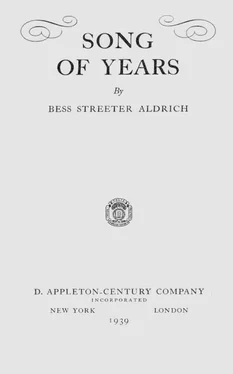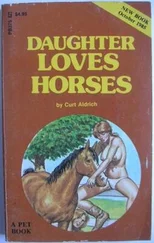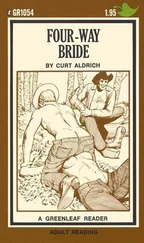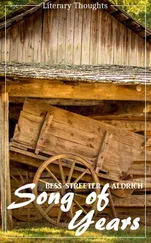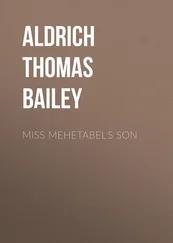At the tearing, ripping sound of the wood, Suzanne wondered whether in all the world there was a noise so pleasant. It made her shiver with delicious chills of anticipation.
Over the top and crushed around the sides were newspapers which Pa lifted out carefully, smoothing them tenderly, so anxious was he to see what the Chicago paper had to say about that new political convention in Jackson, Michigan, called for all those who were getting dissatisfied with the Whigs.
All right! Here come The Things now. Oh, my goodness, how could life hold anything anywhere more exciting. Suddenly Suzanne felt sorry for Evangeline Burrill who had no cousins in Chicago, sorry for every one who was not standing here in the lean-to this very moment to see no-telling-what.
Pa’s contribution to the ceremony finished, there was some delay because of an unaccustomed politeness as to which one might have the honor of lifting out The Things, with “You, Ma,” and “No . . . let Sabina . . . she won’t be here next year when it comes.”
So Sabina, who was to trade this great annual excitement for matrimony, took out the things carefully amid rapt attention and contributory remarks from the side-lines. A gray-blue dress and a blue plaid cape to match, with Pa saying it was as big around as that traveling showman’s tent down to Prairie Rapids. A great hank of red yarn, crinkled from having been raveled out of something, but pounced upon by Ma with satisfaction. New red flannel. Another voluminous dress, dark green, with a little soiled linen lace still at the neckline, and a dark red one with enough rows of black silk galloon braid around its wide skirt to trim several dresses under Emily’s efficient planning. A pair of hoops! And every one was calling out, “They’ve got down to you, now, Phoebe Lou. These are yours.”
There was a bolt of new unbleached muslin which by common consent was laid in Sabina’s willing arms, and which she held lovingly like a baby, and a bolt of gray calico which Ma took charge of, saying she would parcel it out as needed.
And then, you could not believe your eyes. Suzanne’s face turned pink in embarrassment as though some mental activity of her own had brought the thing to life—a parasol of dark green silk, small as a toadstool, on a long slim handle and with only a few little splits in the silk where a rib or two stuck through. It sounded almost wicked for Ma to be asking what in time would they send that out here for, and Phineas to be saying it would be good to fasten over old Star or Baldy in the heat instead of a wet sack when he was plowing.
When the box was emptied, Suzanne experienced a let-down feeling of there being nothing now to live for. Several times before supper she went into Ma’s bedroom to pull out the trundle-bed and look at the lovely green parasol lying there, trying to bring back some of that delicious excitement she had known.
As though this day were like all others they were soon sitting down to supper with the usual confusion. Phineas and Celia had arrived simultaneously at the last unoccupied wooden chair, and Phineas, by virtue of his masculine strength was lifting Celia away from the coveted seat with much teasing laughter on his part and indignant shrieking on hers, so that it was not until Sarah had told them to hush and Jeremiah with bowed head had said mumblingly into his beard, “I’ll-thump-you-both-bless-this-food-to-Thy-Glory,” that there was enough silence to hear the queer foreign sound.
“Hark!” Phoebe Lou and Jeanie said together. “What’s that?”
Others had heard it, too, so that several jumped up and ran outdoors, leaving the dishes of corn-meal mush steaming at each plate like so many miniature camp-fires sending up a white smoke.
The sound was so faint and from so far away, that almost was it not heard at all. But because the wind was coming from the Sturgis Falls direction, it brought that distant eerie tinkle.
“Hush up your noise,” Sarah said crossly to a rooster taking that particular moment to crow near her, so anxious was she to hear this unusual thing.
Every ear was strained to catch it, the sound of the new school-bell ringing from the tower of the little frame building over at the settlement among the trees and stumps.
“All listen to the first tower bell of the Mississippi,” Jeremiah said. He held up his hand and spoke solemnly as though he were pronouncing a benediction. “Eddication has come to Ioway.”
They all went back into the house where the flies had gathered near the corn-meal mush during their absence, so that Suzanne and Celia had to get the long-handled brushes again and whack awhile before they could clear them out.
Jeremiah talked about the bell all through the supper hour until every one grew a little tired of it. “It’s a sort of symbol. You’ll see . . .” He bragged as though he were going to be personally responsible, “Ioway’ll maybe stand at the very head of the Union some day in schools. Like Massachusetts . . . and Connecticut . . . and the others. I want to live to see it . . . free schools, too, common schools . . . no tuition . . . for rich and poor alike . . . all over the state. School funds ought to have better management . . .”
They all laughed at that. “Well, Pa, you’re school director here for our new district. What you been buying for yourself with the school funds?”
Well, he meant all over the Valley and other newly settled parts of the state. If all were run as honest as this one there wouldn’t be need of much complaint. He hoped this Ambrose Willshire who’d walked clear up from Iowa City to see about getting the school would be all right. Here now they had this good log school-house right on the corner of their own land, and even if it was small and not many scholars to attend, it ought to be just as good as a bigger one back east. That was the right way. A chain wasn’t any stronger than its weakest link, and the Iowa school system couldn’t ever expect to be what it should be unless every little log school-house did its share.
They grew impatient over the continuation of the same subject so that they tried to get Pa off on other topics but every little while he would return to it like a puppy shaking an old rag. For with very little schooling himself, Jeremiah Martin was still wanting education for those who would come after him.
Wayne Lockwood had heard the faint far-away sound, too, from his cabin across the prairie and now came riding Blackbird over to the Martins’ to find out whether he was sane or had a ringing in his head.
The Akins heard it, and the Burrills and the Mansons, and all felt an unexplainable elation over the sound, knowing that something pleasant and substantial had happened to the new country. In truth, outside of every cabin within hearing distance of that ringing stood a group of people, bareheaded, silent, as though they had stopped work to worship at the sound of the Angelus.
All night the bell rang jubilantly. When one citizen grew tired pulling the rope, another took his place. It was as though they could not stop the celebration, as though now for the first time Iowa had something of Pennsylvania and Ohio, York State and New England—something which made it seem like “back home.”
The fall term of school began now for Suzanne in that little log building on a corner of the land which her father had donated to the newly formed school district. Like his house, it sat at the edge of the timber which swept up from the south so that trees formed a background to its dark logs and the prairie fell away from its door. There was a tangle of underbrush at its windows—hazelnut and scrub oak and the wild sumac that appeared to be setting fire to the black logs, its scarlet branches licking at the little building like tongues of flame.
Читать дальше
